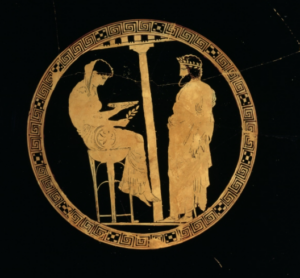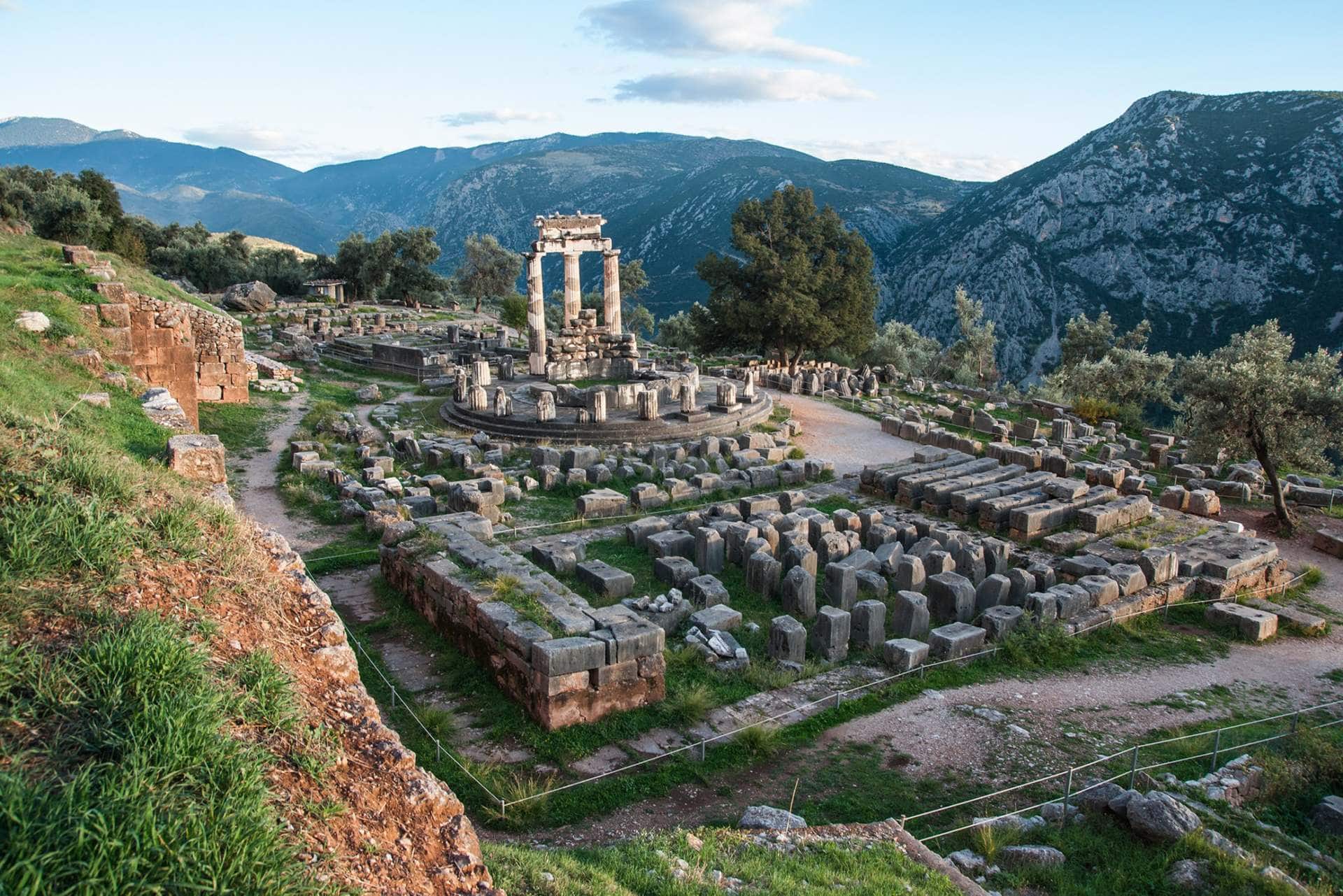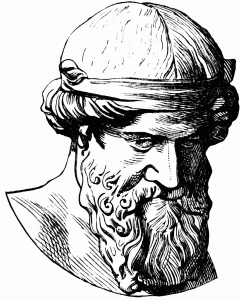Chapter 7: Oracles and Prophecy

King Aegeus of Athens consulting the Delphic Pythia, Attic red-figure kylix (tondo), c. 440 BCE
Chapter Introduction
In this chapter you will learn about divination, which was another important aspect of Greek religion. Divination could take many forms but the goals were essentially the same: to determine the will of the gods and to ascertain the future. This could be done in various ways, including “reading” signs from the gods, such as the flights of birds, examining the entrails of sacrificed animals, or through oracular consultation. This chapter focuses primarily upon oracles and, in particular, the Delphic Oracle.
While there were many oracles throughout the Greek world, Apollo’s oracle at Delphi was by far the most famous. Delphi was located in central mainland Greece, which the Greeks also, not surprisingly, viewed as the center of the earth, hence the omphalos, or “navel stone” that was associated with the site. As the story goes, it was here that Apollo, god of prophecy, chose to found his greatest sanctuary, which included not only the oracle, but also a theater and spaces for the quadrennial athletic games that rivaled the Olympics (Apollo’s games were called the Pythian Games). Unlike most other Greek oracles, the Delphic oracle appears to have been used mostly for civic consultation, as opposed to private, and was open both to hellenes (Greeks) and to xenoi (non-Greeks). Indeed, the oracle continued to be used by the Romans until the early fourth century.

The material, below, includes a documentary, which provides an overview of the Delphic oracle and its connection with Greek history; the readings examine the evidence for oracles, their uses, and meanings. You will see that not only is it challenging to make sense of the oracles themselves, it is equally challenging to determine how the Greeks viewed the oracles and those who delivered them (both the Pythiai and the interpreters, namely the manteis and the chresmologoi). As often with the ancient Greeks, we are left with many more questions than answers, which is fitting for a people who understood that there are few definitive answers in life.

Tasks: Complete the assignments, below, then go to the Blackboard course page. Don’t forget that you’ve also been assigned primary source reading: Greek Religion, V. Warrior, Chapter 5. Take the Module Test and contribute to Discussion Topic 6. You have TWO WEEKS to complete this Module.
NB: The Module Test will involve questions from the documentary on Delphi (below) and Readings 1-3. Discussion Topic 6 refers to the assigned reading from the sourcebook (Chapter 5).
This chapter includes the links to the readings (see below). When you click the links, you may have to log in with your CSU library ID and password. PDF copies of all of the readings are available in the One Drive folder (see the course Blackboard page > Course Readings Module, for the link to One Drive).
Documentary: Delphi: Why it Matters (BBC: 57 minutes)*
Reading 1: “Oracles”, I. Rutherford in State Pilgrims and Sacred Observers in Ancient Greece (2013)
Reading 2: “Oracles for Sale”, H. Bowden in Herodotus and His World (2003)
Reading 3: “Delphic Oracles as Oral Performances”, L. Maurizio, Classical Antiquity 16.2 (1997)
* If you have issues with the documentary link, click here for Films on Demand and use the search bar

